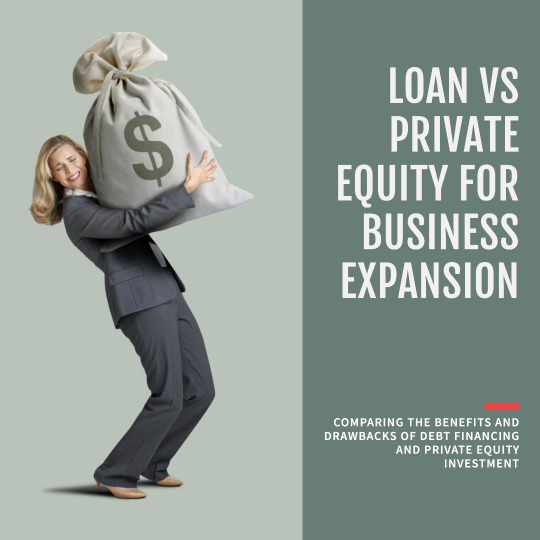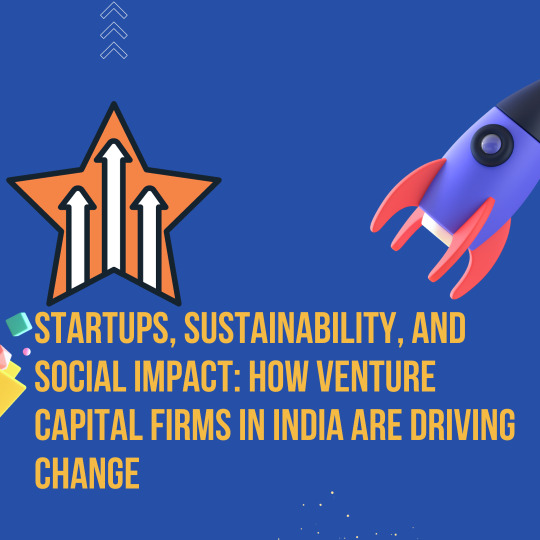#angel investment
Explore tagged Tumblr posts
Text

OpenAI has invested in following companies in 2024. It invests in Seed to Early Stage companies in AI, Software and robotics industries.
Anysphere
Harvey
Co Guard
Physical Intelligence
Figure
VengoAI
0 notes
Text
Early-Stage Investing and How to Get Started

Early-stage investing represents an asset class, with investors who adopt this strategy investing in young companies that are still developing their products, services or ideas in new, exciting and innovative ways. The capital these investors inject into early-stage businesses helps the enterprise grow, develop and expand.
The Benefits and Risks of Early-Stage Investment
For early-stage investors, there are some key potential benefits: for example, the investment could result in healthy financial gains should the business grow and thrive. A small start-up that goes on to become a major player in its industry could earn its early-stage investors a substantial return.
There are risks, however. There is a chance that an investment could be entirely lost if the start-up can’t get traction or fails; therefore, it’s vital to consider the potential and track record of the start-up before committing to an early investment.
Getting Started With Early-Stage Investing
It’s important to carefully think about several factors before making a decision regarding an early-stage investment. The first consideration is the proportion of the existing investment portfolio that the investor is willing to assign to risk. Next, the prospective investor should ask themselves why they are drawn to early-stage investing and whether this route is actually right for them; evaluating investment drivers is a crucial element of this stage. Finally, it may be a good idea to take a course in early-stage or angel investment to have the best chance of success.
Put Investment Strategies in Place
As experienced early-stage and angel investors like Mark Lyttleton know, having an investment strategy in place is highly advisable. This process should include a careful assessment of the dedication, skills and experience of the early-stage business’s founders and an analysis of the relevant market potential.
Conducting due diligence is vital, which means gathering as much information as possible about the start-up’s business model, finances and growth potential. As well as helping the prospective investor to make better-informed decisions, this will help to identify red flags that could impact the start-up’s viability.
Finally, the investor should, as far as possible, leverage their own professional network to access advice from experts.
Portfolio Diversification
By investing in several early start-ups, investors can hedge against risk by diversifying their portfolio. This is often most effective when investments are spread across a range of geographies and industries, helping to hedge against potential losses caused by industry-specific challenges.
0 notes
Text
“I invest in people, not ideas”
- Arthur Rock
1 note
·
View note
Text
Who are Angel Investors ? Explore the Tips to approach them
#entreprenuership#expertguidance#industry experts#mentorship#startup#angel investor#angel investment
1 note
·
View note
Text
Advisory shares: What startups should know

Unlock the full potential of your startup with the strategic use of advisory shares. Our latest blog dives into the essentials every startup should know, from allocation strategies to managing legalities.
Don't miss out on key insights that could empower your growth trajectory.
Dive into the details here: https://spvhub.com/advisory-shares-what-startups-should-know/
#startupGrowth #AdvisoryShares #Startup Strategy #SPVHub #AdvisoryShare #startupbusinessfinancing #angelinvestors #seedfunding #startupgrowth
#investing#startup#founder#angelsyndicate#entrepreneur#Advisoryshares#angel investors#angel investment#seed funding#marketing#startup growth#spv hub
0 notes
Text
How to Invest in Startups Companies: Why Diversification Matters
Navigating the world of investing in startup companies can be both exhilarating and daunting. The potential for high returns is undeniable, but so is the risk of failure. Whether you're a seasoned investor or new to the game, understanding how to invest in startups companies is crucial for making informed decisions and maximizing your chances of success. In this blog, we'll explore the fundamentals of investing in startups, emphasizing the importance of diversification to mitigate risk and maximize returns. We'll also delve into the landscape of venture capital firms in India, focusing on their role in nurturing and funding the growth of startups, particularly in the booming sector of direct-to-consumer (D2C) startups.

Understanding Startup Investments: Investing in startups involves providing capital to early-stage companies in exchange for equity ownership. Unlike investing in publicly traded companies, where financial data and market performance are readily available, startup investing often requires a leap of faith based on a company's vision, team, and market potential.
Why Diversification Matters: Diversification is a fundamental principle of investing that involves spreading your investments across different assets to reduce risk. In the context of startup investing, diversification is crucial due to the inherently high failure rate of early-stage companies. By investing in a portfolio of startups rather than a single company, investors can spread their risk and increase the likelihood of backing a successful venture.
The Role of Venture Capital Firms in India: India has emerged as a hotbed for startup activity, with a thriving ecosystem supported by a growing network of venture capital firms. These firms play a pivotal role in fueling the growth of startups by providing not just capital but also mentorship, industry connections, and strategic guidance.
One prominent example is Krystal Ventures, a leading venture capital firm that specializes in backing promising D2C startups in India. With a keen understanding of consumer trends and market dynamics, Krystal Ventures identifies and nurtures startups with the potential to disrupt traditional retail channels and capture market share in the rapidly evolving landscape of e-commerce.
Navigating the D2C Startup Boom: Direct-to-consumer (D2C) startups have gained significant traction in recent years, driven by shifting consumer preferences and advancements in technology. These startups bypass traditional distribution channels to sell products directly to consumers, often leveraging e-commerce platforms and digital marketing strategies to reach their target audience.
Investing in D2C startups requires a deep understanding of consumer behavior, market trends, and competitive dynamics. By diversifying their investments across a range of D2C startups operating in different industries, investors can capitalize on the growth potential of this burgeoning sector while mitigating the risks associated with individual companies.
Why Krystal Ventures Stands Out: Krystal Ventures stands out as a strategic partner for investors looking to tap into the potential of D2C startups in India. With a track record of successful investments and a team of seasoned professionals with expertise in consumer markets, technology, and entrepreneurship, Krystal Ventures offers unparalleled support and guidance to its portfolio companies.
By connecting the needs of startups with the interests of investors, Krystal Ventures facilitates mutually beneficial partnerships that drive innovation, growth, and value creation. Whether you're an aspiring entrepreneur seeking funding or an investor looking to diversify your portfolio, Krystal Ventures is poised to help you navigate the exciting world of startup investing in India's thriving ecosystem.
Investing in startup companies offers tremendous opportunities for growth and wealth creation, but it also carries inherent risks. By embracing the principle of diversification and partnering with experienced venture capital firms like Krystal Ventures, investors can position themselves for success in the dynamic and ever-evolving landscape of startup investing in India.
#vc firms in india#how to invest in startups for equity#tech startups to invest in#top venture studios#angel investment
0 notes
Text

#eyelashextensions#beautyindustry#massage#eyebrows#angel investor#angel investment#investment#beauty#investor#Venusify
0 notes
Text
Angel Investment in India with Fox&Angel
Are you interested in angel investing in India, one of the world’s most promising markets? Fox&Angel is your strategic and global expansion partner in discovering and nurturing high-potential startups and innovative ventures. India’s startup ecosystem is booming, with a growing number of entrepreneurial ventures seeking funding and guidance. With Fox&Angel’s expertise and extensive network, you can tap into this dynamic landscape.
Here’s what you can expect when you choose Fox&Angel for angel investment in India:
Investment Opportunities: Explore a diverse portfolio of early-stage startups and innovative businesses that align with your investment goals.
Expert Guidance: Benefit from our team’s seasoned advisors who can provide in-depth insights and assist you in making informed investment decisions.
Due Diligence: We conduct comprehensive due diligence to ensure that your investments are well-vetted and poised for growth.
Growth Potential: The Indian startup ecosystem offers substantial growth potential, and your investments can play a pivotal role in shaping the future of these ventures.
Network Access: Gain access to a network of founders, industry experts, and fellow investors, fostering valuable connections and collaborative opportunities.
Fox&Angel is dedicated to helping you make the most of your angel investments in India. Join us in supporting the next generation of innovators and entrepreneurs. Start your angel investment journey in India with Fox&Angel today.
Visit- https://foxnangel.com/
#foxnangel#foreign direct investment#fdi in india#angel investment#angel investment in India#foreign investments
0 notes
Text
Digital Shopping Mall offers you a lowest-risk, highest-return plan B to generate income outside your main source of income, simply by investing as low as $1 (through mobile money, Moneygram, Western Union, Remitly, WorldRemit, Wise, Bitcoin, Ether, or any other mobile money remittance service available in your local area).
This $1 investment gives you a real opportunity to become a multimillionaire in US dollars immediately after the Digital Shopping Coin (DSM) enters the crypto market, as it will give you 5,000 Digital Shopping Points, whose initial price per point will be set by DSM in the crypto market at $10,000. Thus, your $1 invested in DSM could make you a multimillionaire overnight.
Investors in this angel investment deal will be allowed to spend their YEM in DSM at the official YEM price, creating a use case for their YEM and enabling them to arbitrate by buying cheap YEM on the black market and spending it at the official price in DSM.
To understand why people will not be bothered by the supply of Digital Shopping Coin and its price in the market in the same way that they are with other cryptocurrencies, read this content.
https://smartpreordering.blogspot.com/2023/10/why-dsm-and-its-cryptocurrency-are.html
0 notes
Text
How to Create Fund for Start-ups ?

Introduction
Are you wondering how to raise funds for a startup, then this article / post is for you.
Do you know how Private Equity / Venture Capital / Angel Investor can be helpful in funding different stages of Business?
A business has mainly four stages-
Stage #1: Start-up Stage of Business
In this stage, you arrange money from family, friends, and fools (FFF).
Friends They are always ready to help you and mostly become the first investor in your start-up business.
Family - Next is your family members, who can be valuable support in your start-up business.
Fools - (who comes easily in your words without analyzing the future scope of your business) If you have convincing skills you - can also collect fund from such people who can easily believe on your business model.
Stage #2: Early Stage of Business
In this stage of business, Angel Investors supports you. Angel investors refer to those investors, who invest less and gain less but they work like a necessary supplement to your business and help to move your business to the next level.
Stage #3: Growth Stage of Business
Venture capital (VC) is the major source of funding for the growth of business. "VC brings seed capital to your business." VC invests in your idea.
Important Facts -
VC investor usually invests only in Software, Technology or Biotech Business.
VC starts with low investment in business.
VC focuses on Top line in P&L account, sales or big market share.
► VC determines the valuation of a company. He roughly calculates the potential of a company to jump from Rs. 1 crore valuation to Rs. 100 crore. And his money will become Rs. 30 crore from Rs. 30 lac.
VC is a fast mover and works on valuation so he invests in the business.
► From the very start, VC works on high risk.
► VC exit through another investor. ► VC invests in many companies and knows very well that out of 100 companies at least 10 companies will give him desirable profit so he focuses on those 10 companies, which are growing rapidly.
Stage #4: Maturity Stage of Business
Private Equity invests only when your business expands on a vast level. So "Private Equity brings a growth capital in your business."
► PE will invest in your business when he will found Profit / Compounded Annual Growth Rate (CAGR)/ Stability in your business.
► PE investors focus on every stable business. - PE can go inside portfolio i.e. Manufacturing, Retail, IT and FMCG business because he is in the search of stability in the business.
PE starts with high investment.
► PE expects profit from the business and focuses on the bottom line of the P&L account.
PE is stable and wants both profit and
expansion in parallel. PE works on low risk.
PE exit through IPO.

Loan (Debt Financing) and PE (Private Equity) invests in business in the same stage, when operations, sales, and profitability of the company are stable. At this stage, you can take a loan and private equity both for the expansion of business.
If profitability and cash flow are very good in your company, then don't invite Private Equity. Better you take a loan on the nominal interest rate. And if you feel risk in your business also unable to pay EMI, then invite Private Equity.
This essential information will give immense growth in your business and no one can stop you from reaching the top position in your industry.
I hope this blog post was of great value for you. If you want to get in touch with me, please feel free to Email me at: [email protected] / Linkedin
#startup funding#angel investment#venture capital#government grants#crowd funding#business#startup#finance#workforce#fund raising#cash flow#working capital management#working capital loan
1 note
·
View note
Text
Pt II good omens but i've still never watched it
so you crazies blew up the other post, and many of you tried to explain the plot to me. many others said there is no plot. many said i was accurate. many said i wasn't. and then i watched a few youtube edits of the angel and the demon.
I'm convinced that I know at least a little bit more now, so like the great guy I am, I decided to share how well you've educated me.
the plot is an angel and demon become alcoholics together while doing the good ol' animal husbandry
neil gaiman doesn't have social media
everyone is crying because the angel wanted to go to heaven and the demon said no
and then the demon did the kissy smoochy to make the angel stay and the angel said no
they were not married for 6000 years but they were more married than married
there is a car. it is silver and crowley likes it.
the car is then yellow. crowley doesn't like it. aziraphale does.
there's some kind of Jane Austen ball and dance
oh but also crowley gives aziraphale a more private dance in their home and he bows while making intensely sexual eye contact with the angel who is turned on and says nice and everyone is gasping about it
no one knows about god, not the fandom, not the characters, not god herself. god is ineffable. hey mum i learned a new word!
they run over an american witch
the angel likes books in a way bordering on obsessive and worshipful
the demon likes the angel in a way bordering on obsessive and worshipful
there's a gramophone
crowley says sorry a bunch of times
aziraphale keeps getting flustered and dying coz of crowley, and the fandom dies every time. crowley is also dying. everyone is dying. hopefully not literally, im now scared of this fandom.
there's a psychedelic drug trip at some point that's in the edits where crowley goes whee down a chute. either that or the sleep deprivation is getting to me. fuck you, good omens fandom.
terry pratchett is a guy
whether he is real, or a character, or like neil gaiman he is neither real nor a character, i am unsure, but he is important and people want me to remember him
crowley likes speeding
#good omens#lgbtqia#inaccurate good omens#but slightly less inaccurate now#or more idk#aziraphale#crowley#aziracrow#aziraphel#aziraley#azirafell#good omens funny#apparently it is funny but only if you dont get invested#but you will get invested#angel#demon#heaven#we could have been us#tell me you said no#ineffable husbands#good ineffable omens#crowley's car#neil gaiman#terry pratchett#gay#husbands#queer#funny#what is funny is how ive been sucked into this whirlpool at 1 am#fuck you all istg
2K notes
·
View notes
Text
Ireland Enterprise minister Mr. Peter Burke, announced 250m Euro for Seed and Venture Capital Scheme for the period 2025 to 2029.
#startup#trendingnow#investing#ceo#business#vc#venturecapitalist#venture capital#ireland#dublin#enterpreneur#europe#angel investment#angel investor
0 notes
Text
Ten of the Most Important Traits of Successful Investors

As an experienced business mentor and angel investor, Mark Lyttleton provides small businesses and early-stage companies with invaluable support, helping founders to avoid common pitfalls while negotiating the many challenges involved in growing a business. From the ability to make timely choices to asking questions and maintaining an inquisitive mind, this article will explore some of the most in-demand traits for successful investors.
Patience
Good investors know that success never happens overnight. Rather than responding to short-term volatility with knee-jerk reactions, they hold onto their investments through market fluctuations, recognising that patience is key to unlock their true value over time.
Decisiveness
Rather than dithering, shrewd investors make timely decisions. While research, analysis and evaluation are important, good investors understand the importance of taking action at the appropriate time, recognising that sitting on the fence indefinitely only leads to missed investment opportunities.
Discipline
Creating and following a clearly defined investment strategy is critical to investment success. Rather than blindly following the crowd and chasing after the latest fad, smart investors are guided by a disciplined approach in their investment decisions, preventing their judgement from being clouded by emotional biases.
Knowing Their Risk Tolerance
Savvy investors are self-aware when it comes to their own risk tolerance, avoiding investment options that exceed their risk-taking capacity. They understand that this may result in decisions driven by fear rather than logic, potentially culminating in poor investment outcomes.
Analytical Skills
Strong analytical skills help investors to conduct thorough research, evaluating financial statements, economic indicators and market trends to make informed investment decisions.
Active Passiveness
Despite being an oxymoron, active passiveness is a defining characteristic that sets great investors apart from the rest of the pack. Successful investors actively scout promising investment opportunities, investing time evaluating options and building out their portfolios.
Diversification
Experienced investors understand all too well the risks involved in placing all of their eggs in one basket. Rather, they spread their investments across multiple investment vehicles that align with their risk tolerance, desired investment window and investment goals.
Ask Questions
Good investors recognise the need to ask questions to avoid getting locked into a bad deal. Successful investors are inquisitive, taking the time to read all of the fine print and learning everything they need to know about risks, fees, lock-in periods, exit charges, commissions, alternatives, premature termination options and anything else that may be relevant to their investment decision.
Continuous Learning
The investment landscape is continuously evolving, placing the onus on forward-looking investors to keep up to date with the latest financial innovations, technological advancements and market developments.
1 note
·
View note
Text
This is what happens when you're raised by TV and trained in literary analysis
Beyond the crushing heartbreak of that finale, one thing in particular has stuck with me when I look at it in the context of S2 as a whole.
He lays out their relationship, "We're a team, a group. A group of the two of us. And we've spent our existence pretending that we aren't."
He then turns his head away and says, "I mean, the last few years, not really."
He pauses here, facing the interior of the bookshop. Really looks it up and down.
Turns back, "And I would like to spend" before choking on his words and looks toward the window. He can't finish saying something like "And I would like to spend eternity with you" because that's too much, too fast, for both of them.
But it's that "last few years" bit that has firmly lodged itself in my very broken brain.
According to Gaiman, it's been "a few years" since the end of Season 1. Armageddon has been averted. Heaven and Hell have reluctantly retreated. Crowley and Aziraphale have been effectively cut loose from their "sides," leaving them to form their own side.
So at the start of Season 2, we get a glimpse of the “fragile existence” they have carved out for themselves. To me, the biggest difference that we see is how they exist together in front of others. Going to the coffee shop, the pub, and the other shops along the street that Aziraphale has lived on for over 200 years. And don’t forget how they act in front of Nina, Maggie, and sweet, dim Muriel.

At the coffee shop, Aziraphale stammers a bit when Nina asks who Crowley is, but he still seems to have affection in his voice when he says, "We go back a long time."

Compared to Shakespearian "He's not my friend! We've never met before. We don't know each other!" panic, this is an incredible difference.

Of course, each time, Crowley is cool and cheeky and does nothing to indicate that they aren't a pair. Though, of course, he does deny it when Nina asks about Aziraphale being his side piece. “He’s not my bit on the side! He’s far too pure of heart to be anyone’s bit on the side.” And refers to him as an “Angel [swallows]I know.”
When they go the pub, Crowley's joy at doing something together in public that they do not normally do is super cute, including his cheeky order for Aziraphale's sherry. Then, when bringing the drinks over to the socially trapped Aziraphale, he greets Mr. Brown with a truly adorable, "Hello" and a signature DT smile. Then upon hearing how “excited” Mr. Fell is to host the meeting, he looks down and says, “Oh? You astonish me.” while Aziraphale sips his sherry and squirms.

We also watch as Crowley follows Aziraphale as he goes to each shop and talks to the owners about the meeting/secret ball. In theory, Crowley has no reason to tag along, and he certainly doesn’t help sway anyone who doesn’t want to/can’t go. He goofs around at the magic shop. He splays out on the bench, chin on hand, looking for all the world a husband waiting for his wife to pick out a dress at the department store. They are so married it’s ridiculous.

Finally, their behavior in front of Muriel while inside their sanctuary. Crowley sits on the arm of Aziraphale’s chair, somehow looking supremely comfortable on the old-fashioned furniture. He folds up those gloriously long limbs and presses himself as close as possible.

He smiles and plays along with Aziraphale’s coaching of Muriel in her disguise. Calls him Angel and asks to speak in private. And at the end, during the awful wait while Aziraphale talks with The Metatron, Crowley cleans up the shop and tells Muriel that he and Aziraphale will need some “us” time after all this. No beating around the bush.

Without oversight, they can be openly together and happy. But Heaven just can’t let that happen.
#good omens#good omens 2#crowley x aziraphale#crowley#aziraphale#aziracrow#ineffable husbands#david tennant#michael sheen#ineffable divorce#thank you for coming to my ted talk#putting my useless degree to “good” use#I'm not overly invested in these two at all#why can't we have nice things#heaven and hell are toxic af#come on aziraphale#crowley doesn't need to be an angel again#just love him as he is away from that nonsense#good omens meta#The last few years
2K notes
·
View notes
Text
it's actually criminal that sir pentious, angel, and husk are canonically really good friends and yet we don't have any idea what that friendship looks like in practice because all of it happens OFF SCREEN
#ughhHHhhhH#please i want to be invested in their connection but there's barely anything there. you can't just SAY they're friends#you have to SHOW ME#sick and twisted#sir pentious#angel dust#husk#hazbin hotel#pentious#op
241 notes
·
View notes
Text
Startups, Sustainability, and Social Impact: How Venture Capital Firms in India Are Driving Change
India's startup ecosystem has been experiencing a remarkable transformation in recent years, driven by the convergence of innovation, sustainability, and social impact. Venture capital firms in India are playing a pivotal role in fostering this change, channelling their investments into promising startups that are not only disrupting industries but also making a positive difference in society. In this blog, we'll delve into the dynamic landscape of venture capital firms in India, explore some of the most promising startups to invest in, and provide insights on how to find investors for startups in India.

Venture Capital Firms in India: Catalysts for Innovation and Impact
India's venture capital landscape has evolved significantly, mirroring the rapid growth of its startup ecosystem. These firms have moved beyond just providing capital; they are now active partners in shaping the future. Venture capital firms are not only seeking financial returns but also looking for startups that align with sustainability and social impact goals.
One notable player in the Indian venture capital scene is Krystal Ventures, which has been at the forefront of funding startups committed to making a meaningful difference. They recognize that the future lies in businesses that are not just profitable but also socially responsible. This shift in focus reflects a broader global trend where investors are increasingly considering environmental, social, and governance (ESG) factors in their investment decisions.
Promising Startups to Invest In
EcoTech Innovations: Startups like CarbonSolutions and Green Energy Revolution are addressing critical environmental challenges. CarbonSolutions offers innovative carbon capture and utilization solutions, while Green Energy Revolution is making strides in renewable energy technology. Both these startups are actively reducing carbon footprints, contributing to sustainability efforts, and aligning with global climate goals.
Healthcare for All: Healthcare has taken center stage, especially in the wake of the COVID-19 pandemic. Indian startups like MedTechCare and HealthServe India are revolutionizing healthcare accessibility. MedTechCare is focused on affordable and accessible telemedicine services, while HealthServe India is bringing quality healthcare to underserved rural areas. These startups are not only profitable but also fulfilling a crucial social need.
Agricultural Transformation: Agriculture is the backbone of India, and startups like AgriSolutions and FarmTech Revolution are transforming the sector. AgriSolutions provides farmers with advanced farming technology and data analytics to improve yields sustainably. Meanwhile, FarmTech Revolution is helping small-scale farmers access markets efficiently through digital platforms.
Education for the Future: EdTech startups like LearnSmart and EdConnect India are redefining education. LearnSmart offers personalized learning solutions, adapting to the unique needs of each student, while EdConnect India is bridging the digital divide in education by providing quality online courses to remote areas.
Waste Management and Recycling: Waste management is a pressing concern, and startups like GreenCycle Solutions and WasteLess India are tackling it head-on. GreenCycle Solutions offers innovative recycling solutions, while WasteLess India focuses on reducing food wastage by connecting surplus food with those in need.
How to Find Investors for Startups in India
For aspiring entrepreneurs and startup founders looking to secure funding in India, it's essential to navigate the complex world of venture capital. Here are some key steps to finding investors:
Craft a Solid Business Plan: Before approaching investors, ensure you have a well-thought-out business plan that outlines your startup's vision, mission, and financial projections. Investors want to see a clear roadmap to success.
Network Actively: Attend industry events, startup meetups, and conferences to build a network of contacts in the startup ecosystem. Often, introductions from trusted connections can open doors to potential investors.
Leverage Online Platforms: Online platforms like AngelList and LinkedIn can be valuable tools for connecting with potential investors. Create a compelling online presence for your startup and reach out to investors who align with your industry and goals.
Pitch Effectively: When you do secure a meeting with potential investors, be prepared to deliver a compelling pitch. Highlight your startup's unique value proposition, its potential for growth, and the positive impact it can have on society.
Seek Guidance from Incubators and Accelerators: Consider joining startup incubators and accelerators, which often have networks of investors and mentors. These programs can provide valuable guidance and connections to help you secure funding.
Stay Informed: Keep abreast of the latest trends in venture capital and startup funding. Understanding what investors are looking for in startups can help you tailor your pitch and approach.
In conclusion, the landscape of venture capital firms in India is evolving, with a growing emphasis on sustainability and social impact. Krystal Ventures, among others, is leading the charge by investing in startups that are not only profitable but also making a positive difference in society. As India's startup ecosystem continues to mature, promising startups like CarbonSolutions, HealthServe India, and AgriSolutions are poised to drive change and shape a more sustainable and inclusive future.
If you're an entrepreneur with a vision to create a startup that combines profitability with social impact, consider exploring the opportunities that venture capital firms like Krystal Ventures can offer. Their commitment to supporting startups with a mission aligning with sustainability and social responsibility could be the catalyst you need to turn your dream into a reality.
#how to invest in startups for equity#vc firms in india#how to invest in startups companies#angel investment#venture capital firms in india
0 notes